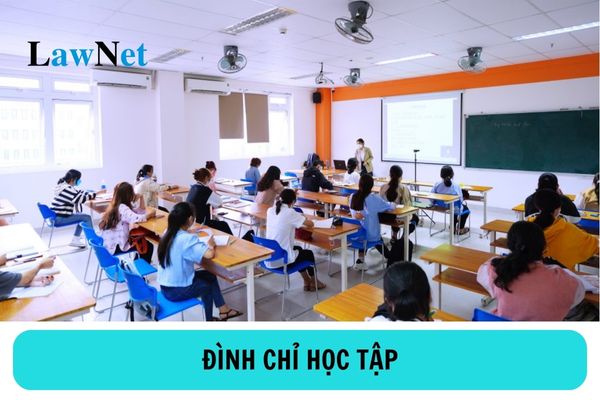How long is a university student suspended for having someone take their exam in Vietnam?
How long is a university student suspended for having someone take their exam in Vietnam?
Pursuant to Article 8 of the Undergraduate Training Regulations issued together with Circular 08/2021/TT-BGDDT as follows:
Handling violations for students
- Students who commit fraud in exams, assessments, or evaluations of academic results will be disciplined for each subject violated according to the current High School Graduation Examination Regulations issued by the Ministry of Education and Training, except as provided in Clause 2 of this Article.
- Students who take exams for others or have others take exams for them will be disciplined with a 1-year suspension for the first offense and expulsion for the second offense.
- Learners using fake documents, diplomas, or certificates as admission or graduation conditions will be expelled; any issued diplomas will be revoked and invalidated.
Therefore, university students who have someone take their exam for them will be disciplined with a 1-year suspension for the first offense and expulsion for the second offense.

How long is a university student suspended for having someone take their exam in Vietnam? (Image from the internet)
What are the procedures for disciplining full-time undergraduate students in Vietnam?
According to Article 10 of the Regulation on Student Affairs for full-time undergraduate programs issued together with Circular 10/2016/TT-BGDDT, the procedures for disciplining full-time undergraduate students are as follows:
Step 1: The student in violation must write a self-criticism report and determine the disciplinary action. If the student does not comply with writing a self-criticism report, the Student Reward and Discipline Council will still convene to handle the case based on the collected evidence.
Step 2: The class supervisor convenes a meeting with the class to analyze and propose disciplinary actions to the faculty or unit in charge of student affairs.
Step 3: The faculty or unit in charge of student affairs reviews the case and proposes it to the Student Reward and Discipline Council of the university.
Step 4: The Student Reward and Discipline Council convenes a meeting to impose disciplinary actions.
The composition includes: Council members, representatives of the student's class, and the student in violation. If the student who violated the rules is invited but does not attend (without a legitimate reason) and does not submit a self-criticism report, the Council will still proceed with the meeting and consider additional disciplinary breaches for lack of cooperation.
The Council recommends a disciplinary action to the Head of the university to issue a written disciplinary decision.
Note: The disciplinary file for the student includes:
- Self-criticism report (if any);
- Minutes of the class meeting for the student in violation;
- Minutes from the faculty or unit in charge of student affairs;
- Related documents.
When does the disciplinary decision for full-time undergraduate students in Vietnam lapse?
According to Article 11 of the Regulation on Student Affairs for full-time undergraduate programs issued together with Circular 10/2016/TT-BGDDT, the disciplinary decision for full-time undergraduate students will lapse when:
- For students disciplined with a warning: after 3 months from the date of the disciplinary decision, if the student does not reoffend or commit any violations that warrant disciplinary action, the decision will automatically lapse, and the student will regain their rights from the date the decision lapses.
- For students disciplined with a reprimand: after 6 months from the date of the disciplinary decision, if the student does not reoffend or commit any violations that warrant disciplinary action, the decision will automatically lapse, and the student will regain their rights from the date the decision lapses.
- For students suspended for a specified time: upon the end of the suspension period, the student must present a certificate from the local authority (commune-level) where they reside, proving good civic duty, and a certificate from the competent authority confirming the completion of any suspended prison sentences, for the university to consider re-admission if eligible.

